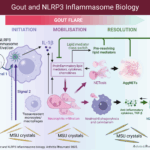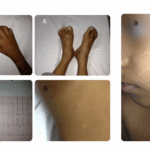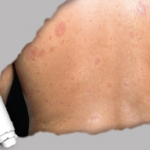Although dryness and other symptoms of Sjögren’s disease continue to vex patients, the prospect of new treatments and a recent name change demonstrate advances in patient care.

Subcategories:Axial SpondyloarthritisClinical Criteria/GuidelinesGout and Crystalline ArthritisMyositisOsteoarthritis and Bone DisordersOther Rheumatic ConditionsPain SyndromesPediatric ConditionsPsoriatic ArthritisRheumatoid ArthritisSjögren’s DiseaseSoft Tissue PainSystemic Lupus ErythematosusSystemic SclerosisVasculitis

Although dryness and other symptoms of Sjögren’s disease continue to vex patients, the prospect of new treatments and a recent name change demonstrate advances in patient care.

Katie Robinson |
Understanding the role of NLRP3 inflammasome activation in gout flares points to potential of NLRP3 inflammasome inhibitors as a new treatment option.
Research from Papazoglou et al. highlights the substantial risk of atherosclerosis progression and incident cardiovascular events in patients with systemic lupus erythematosus, as well as the importance of prolonged remission and the sustained control of cardiovascular risk factors in mitigating these risks over time.

Among patients with systemic lupus erythematosus (SLE), lupus nephritis is one of the more common health problems and a leading cause of mortality. In adults with SLE, as many as five of 10 will develop kidney disease. In children with lupus, eight of 10 will develop kidney disease.1 Lupus nephritis appears to be more prevalent…

Inborn errors of immunity may not always be easy to recognize, but rheumatologists should look out for them. Dr. Bharat Kumar shares his insights.

Sarath Chandra Mouli Veeravalli, MD, FRCP (London) |
For the 2024 Image Competition, the ACR sought images with educational or remarkable manifestations representing a diverse range of pediatric patients with autoimmune, inflammatory, infectious and malignant drivers of rheumatic disease. Here, we showcase the winning images from South Asia.

Deborah Levenson |
Injected abatacept may be a worthwhile treatment for certain patients with idiopathic inflammatory myositis (IIM), according to recent research.1 Patients with the rare autoimmune conditions involving inflammation of muscle (myositis) and other organ systems suffer widespread organ dysfunction, increased morbidity, physical disabilities and early death. Symptoms vary by subtype. For example, dermatomyositis (DM) involves muscle…

Risk of Mortality from SLE By Ansaam Daoud, MD, Loai Dweik, MD, & Omer Pamuk, MD Why was this study done? Systemic lupus erythematosus (SLE) is a chronic autoimmune disease with significant mortality, particularly affecting racial and ethnic minorities. This study aimed to assess national SLE mortality trends over the past two decades, stratified by…

Initial findings from a phase 2b clinical trial demonstrate the safety and efficacy of three different daily doses of SAP-001 to lower the serum urate levels of patients with refractory gout.

Based on research showing improved signs and symptoms of systemic sclerosis in patients taking cilnidipine vs. placebo, the FDA granted orphan drug designation for the agent.